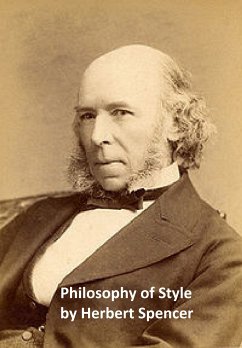Classic essay, first published in 1852. According to Wikipedia: "Herbert Spencer (27 April 1820 - 8 December 1903) was an English philosopher, prominent classical liberal political theorist, and sociological theorist of the Victorian era. Spencer developed an all-embracing conception of evolution as the progressive development of the physical world, biological organisms, the human mind, and human culture and societies. As a polymath, he contributed to a wide range of subjects, including ethics, religion, anthropology, economics, political theory, philosophy, biology, sociology, and psychology. During his lifetime he achieved tremendous authority, mainly in English-speaking academia. In 1902 he was nominated for the Nobel Prize in Literature. Indeed, in Great Britain and the United States at "one time Spencer's disciples had not blushed to compare him with Aristotle!" He is best known for coining the concept "survival of the fittest," which he did in Principles of Biology (1864), after reading Charles Darwin's On the Origin of Species. This term strongly suggests natural selection, yet as Spencer extended evolution into realms of sociology and ethics, he made use of Lamarckism rather than natural selection."
Dieser Download kann aus rechtlichen Gründen nur mit Rechnungsadresse in A, B, BG, CY, CZ, D, DK, EW, E, FIN, F, GR, H, IRL, I, LT, L, LR, M, NL, PL, P, R, S, SLO, SK ausgeliefert werden.









